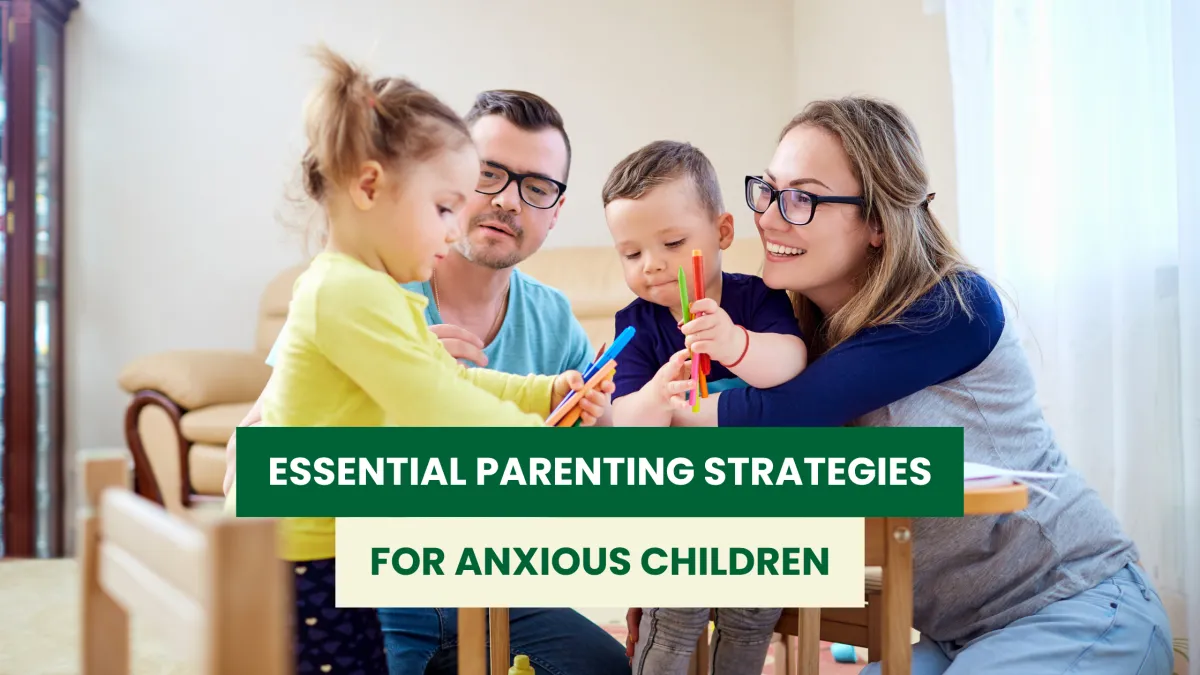
Essential Parenting Strategies
As a clinical child psychologist, I've observed that parenting an anxious teenager requires special sensitivity and evidence-based approaches. Adolescence naturally brings heightened emotional reactivity as teens navigate identity formation, increasing independence, and significant neurobiological changes. When anxiety enters this already complex picture, parents need specific strategies that both acknowledge their teen's distress and foster resilience.
Understanding Teen Anxiety
Adolescent anxiety isn't simply excessive worry; it manifests through a complex interplay of physiological responses, cognitive patterns, and behavioral adaptations. Teens experience anxiety in diverse ways, including physical symptoms (racing heart, stomach distress), cognitive symptoms (catastrophic thinking, difficulty concentrating), and behavioral symptoms (avoidance, reassurance seeking, irritability). Research shows that approximately 31.9% of adolescents will experience an anxiety disorder by age 18, making it the most common mental health challenge for this age group..
Evidence-Based Parental Approaches
Cognitive-Behavioral Strategies have robust empirical support for addressing teen anxiety. Parents can help teens identify cognitive distortions ("I'll definitely fail this test") and develop more realistic thought patterns ("This test is challenging, but I've prepared and can use strategies to manage difficult questions"). Research by Kendall et al. (2016) demonstrates that parental involvement in cognitive restructuring significantly enhances treatment outcomes.
Exposure-Based Techniques involve gradually facing feared situations rather than avoiding them. According to studies by Silverman and colleagues, when parents support gradual exposure while managing their own anxiety responses, teens show meaningful symptom reduction. Parents should validate their teen's distress while encouraging manageable steps toward feared situations, providing support without enabling avoidance.
Emotional Validation research by Gottman demonstrates that acknowledging emotions without dismissing them ("I understand you're anxious about this presentation") helps teens develop emotional regulation skills. This contrasts with minimizing approaches ("It's no big deal") that can intensify anxiety by suggesting teens shouldn't feel what they're experiencing.
Autonomy Support involves encouraging independent problem-solving while providing appropriate guidance. Studies from self-determination theory research show that teens with anxiety benefit when parents balance independence with support. This might involve collaboratively brainstorming solutions rather than taking over or withdrawing completely.
Mindfulness Practices have strong evidence for anxiety reduction. Research by Biegel et al. found that mindfulness-based stress reduction techniques significantly reduced anxiety symptoms in adolescents. Parents can practice alongside teens, normalizing these approaches through family mindfulness moments or shared breathing exercises.
Modeling Healthy Coping demonstrates effective anxiety management. Research consistently shows that children learn emotional regulation largely through observation. When parents openly discuss and demonstrate healthy responses to their own anxiety, teens develop more adaptive coping mechanisms.
Implementation Considerations
Consistency between parents creates a predictable environment that reduces anxiety triggers. Research by Dadds and colleagues shows that parental consistency significantly affects treatment outcomes for anxious youth.
Cultural considerations matter significantly. Studies by Varela and colleagues demonstrate that anxiety manifestation and effective intervention approaches vary across cultural contexts, necessitating culturally-sensitive adaptations of these strategies.
Professional support remains essential when anxiety significantly impairs functioning. Evidence indicates that combined parent-involved therapy and appropriate medication management often yields the most robust outcomes for severe adolescent anxiety.
By implementing these evidence-based approaches with patience and consistency, parents can help anxious teens develop resilience and effective coping strategies that serve them throughout life.
